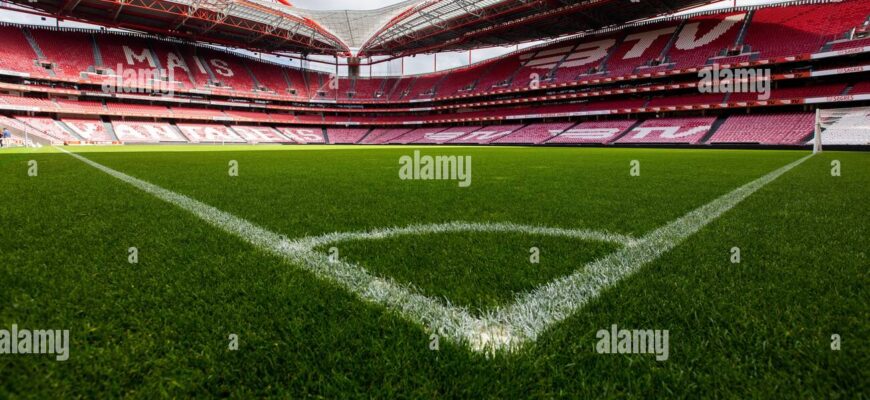In a significant legal victory, Portuguese football powerhouse Benfica has successfully secured an interim injunction from the Court of Arbitration for Sport (TAD), ensuring their iconic Estádio da Luz will not face a one-match closure.
The Disciplinary Flashpoint
The genesis of this legal saga traces back to July 4th, when the Disciplinary Council of the Portuguese Football Federation (FPF) levied a one-match stadium ban against Benfica. This sanction was a direct consequence of alleged misconduct by Benfica supporters during a contentious encounter against arch-rivals FC Porto at the Estádio do Dragão. While the official communication remained concise, such disciplinary actions typically follow incidents involving disruptive fan behavior, ranging from pyrotechnic displays to unsporting chants or the throwing of objects.
The FPF, tasked with upholding sporting integrity and safety, had evidently deemed the collective actions of a segment of the fanbase sufficiently egregious to warrant the rare and impactful measure of a stadium closure. For any club, a ban of this nature represents not only a financial blow due to lost gate receipts but also a significant disruption to team morale and fan engagement, depriving thousands of the opportunity to support their team from their home ground.
Benfica`s Measured Legal Counter-Attack
Rather than passively accept the verdict, Benfica, known for its proactive approach both on and off the pitch, immediately initiated a robust legal challenge. The club promptly announced its intention to appeal the FPF`s decision to the **Tribunal Arbitral do Desporto (TAD)**, Portugal`s Court of Arbitration for Sport. This independent judicial body serves as the ultimate arbiter in domestic sporting disputes, providing a neutral ground for clubs to contest decisions made by national federations.
Crucially, alongside their primary appeal contesting the merits of the ban, Benfica also filed for a **providência cautelar** – an interim injunction. This legal instrument is a common, yet powerful, recourse in such situations. Its purpose is to obtain a provisional suspension of a decision, preventing immediate and potentially irreversible harm to the applicant while the full legal review process unfolds. In essence, it`s a request to hit the pause button on the punishment until the `why` and `how` can be thoroughly examined.
The TAD`s Deliberation and Decisive Outcome
The sporting world watched keenly as the TAD deliberated. The core of their assessment hinged on whether granting Benfica`s request for a provisional suspension would cause “relevant prejudice” to the FPF. After careful consideration, the TAD ruled in Benfica`s favor, accepting the interim injunction and thereby suspending the stadium ban.
This decision, as reported, suggests the TAD found no significant, immediate harm or undue disadvantage would befall the FPF by allowing the stadium to remain open pending the full appeal. It`s a pragmatic stance, acknowledging that the consequences of an immediate stadium closure for Benfica—ranging from financial losses to logistical complexities—outweighed any urgent necessity for the ban`s implementation *before* a comprehensive legal review. One might even discern a subtle irony in the rapidity with which legal mechanisms can alleviate a sanction when the economic and emotional pulse of football is at stake.
A Temporary Respite, A Broader Precedent
For Benfica, this marks a vital, albeit provisional, victory. It ensures that the fervent atmosphere of Estádio da Luz, the club`s beating heart, will continue to welcome supporters for upcoming fixtures. This continuity is indispensable, not just for the team`s performance but also for the club`s operational stability and revenue generation. The Eagles` faithful can breathe a collective sigh of relief, knowing their `Cathedral` remains open.
The main appeal against the FPF`s one-match ban remains on the docket, meaning the ultimate fate of the sanction is yet to be definitively decided. However, this successful interim injunction underscores the strategic importance of legal avenues in modern professional sports. It highlights how clubs, armed with legal acumen, can navigate complex disciplinary landscapes, turning potential setbacks into temporary reprieves, proving that sometimes, the most decisive battles are fought not on the pitch, but in the arbitration halls.









